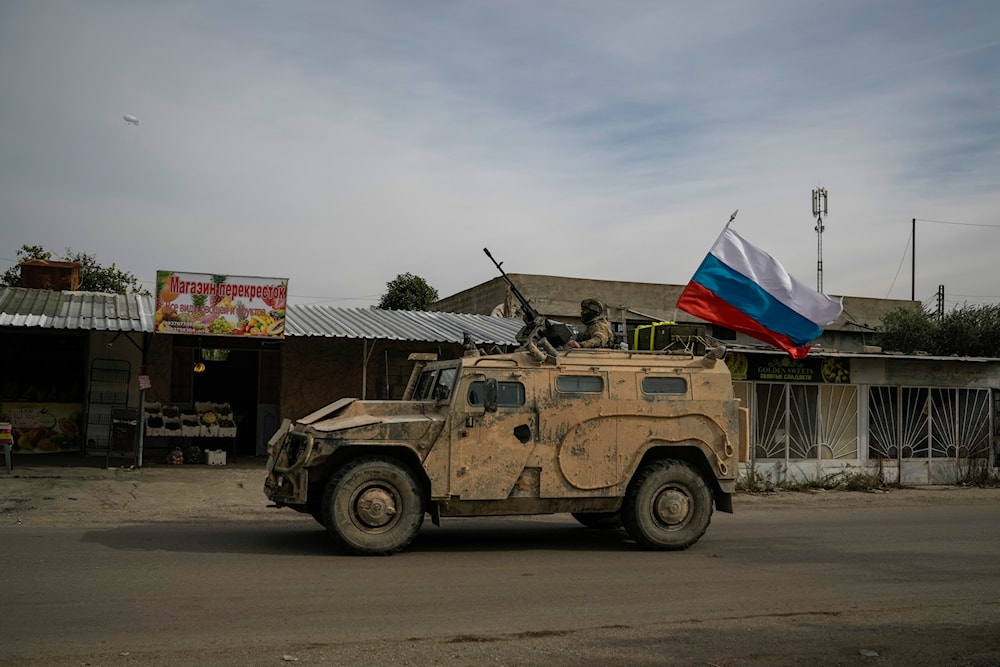Syrian Coastal Committee sets terms for Hmeimim withdrawal
The Syrian Coastal Coordination Committee outlined conditions for leaving the Hmeimim base, including a UN-backed reconciliation committee, compensation for victims, halting arrests, transitional justice, military personnel rights, foreign faction withdrawal, and addressing sectarian violence.
-

A Russian military vehicle drives toward the Hmeimim Air Base, a Syrian airbase currently operated by Russia, located southeast of the city of Latakia in the town of Hmeimim, Syria, on December 16, 2024. (AP)
The Syrian Coastal Coordination Committee, representing residents of the Russian Hmeimim military base, has stated to the Russian authorities their conditions for leaving the base and returning to their homes.
The committee called for the creation of a national reconciliation body under UN supervision, comprising civil, religious, and social figures from various Syrian regions, as long as it aligned with the Coordination Committee's approval.
The statement also emphasized the need for an international investigative committee to conduct a transparent inquiry into the atrocities committed against civilians, particularly women and children, to identify perpetrators, determine the fate of the missing, and facilitate their return.
Additionally, the committee demanded the cessation of arbitrary arrests, the release of innocents, compensation for victims, the rehabilitation of affected coastal areas, and the establishment of conditions for the safe and dignified return of residents. Finally, it called for a national framework for transitional justice to eliminate impunity and build a new Syrian society based on human rights and equal citizenship.
Read next: Syrian-Russian operations eliminate dozens of terrorists in Aleppo
The Syrian Coastal Coordination Committee's conditions for leaving the Hmeimim base include securing full rights for military personnel of all ranks, including compensation, salaries, and retirement benefits, the withdrawal of foreign armed factions, and the gradual involvement of coastal residents in protecting their families.
The committee condemned the transformation of what began as an "individual case" into a systemic pattern of sectarian killings, lacking accountability or oversight. They also criticized the policy of starvation and marginalization targeting a core segment of the Syrian population through economic oppression and social exclusion, particularly through the unlawful dismissal of employees and arbitrary arrests.
Additionally, the committee denounced the use of the term "remnants of the regime" to justify arbitrary arrests and extrajudicial killings, highlighting the failure to implement transitional justice measures that could have prevented these abuses.
The committee expressed concern over rising sectarian incitement, particularly in Homs and coastal areas, which peaked during Ramadan. They also condemned the systematic abuse of unarmed civilians by armed factions operating under the Ministry of Defense, which forced residents to seek refuge at the Russian military base.

 2 Min Read
2 Min Read










